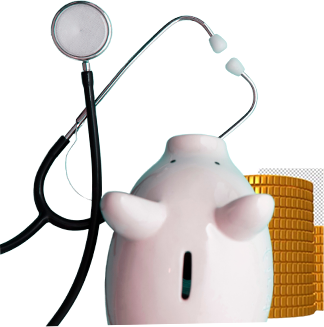PERSONALIZED DIET PLAN FROM
Dietitian Nutritionist for Hypertension/Blood Pressure

Contact Us
Hypertension, also referred to as high blood pressure, is one of the most common disorders in this world. If not addressed properly, there is a high risk of developing severe complications such as cardiac, stroke, and kidney damage. Seeking help from a specialized nutritionist and dietitian may help you in implementing lifestyle changes that, over time, might keep the blood pressure in check and might improve your health altogether. This guide contains useful information about hypertension, its causes, and ways through which dietary changes, lifestyle changes, and the dietitian’s role could play a pivotal part in combating the disease.

Hypertension and Its Causes
Hypertension is the condition where the force of the blood against artery walls is consistently high; it is a pathological condition that has serious implications for an individual’s health in general. Causes linked to hypertension include:
- Genetic Factors: Certain families are known to carry genetic predispositions, making them more likely to develop hypertension.
- Dietary Habits: A diet rich in sodium, saturated fats, or any processed foods is known to increase blood pressure.
- Lack of Physical Activity: An absence of regular physical exercise can slow metabolism, increase the risk of circulation issues, or gain weight, all of which are known to increase blood pressure and the risk of developing hypertension.
- Stress: Poor stress management, such as chronic stress, can enhance the risk of high hypertension as such hormones are released, which increases the level of blood pressure.
- Age and Gender: Risk increases with age, with men younger than 65 and women older than 65 having the greatest chance of developing hypertension.
- Other Health Conditions: Other forms of hypertension can be associated with diseases such as diabetes or compromised kidney functions.
Dietary Recommendations for Managing Hypertension
A specialised dietitian nutritionist for hypertension will help in developing a customized plan suited to an individual’s needs, emphasizing blood pressure-lowering foods and overall nutrition. Some of the dietary recommendations that are frequently suggested include:
Adopt the DASH Diet: This diet was specifically designed to help lower blood pressure. It involves the consumption of vegetables and fruits, lean protein, and whole grains.
Increase Potassium-Rich Foods: Bananas, spinach, or sweet potatoes all help with potassium. This nutrient is necessary to combat sodium.
Choose Low-Fat Dairy: This is ideal for people with heart diseases. It includes milk low in fats and yogurt.
Focus on Healthy Fats: Try to substitute saturated and trans fats with unsaturated sources of fat like avocado, nuts, and olive oil.
Add Fiber-Rich Foods: Promoting healthy levels of cholesterol, beans, whole grains, and other legumes have been known to contribute to improving one’s heart health.
Reduce Sodium Intake: For those who suffer from hypertension, it is vital to consume no more than 2300mg of salt a day.

How a Dietitian Can Help with Hypertension?
Partnering with a dietitian for hypertension/blood pressure offers individualized support and ongoing guidance. Here’s how they can help:
- Personalized Nutrition Plans: They assess your health needs and create a tailored eating plan focusing on nutrient-dense foods that support blood pressure control.
- Accountability and Motivation: Regular consultations help maintain focus on health goals, motivating to adopt and sustain healthier habits.
- Monitoring Progress: Dietitians track your progress, adjusting dietary recommendations to optimize outcomes.
- Education on Food Choices: They help demystify food labels, enabling better choices regarding sodium, fat, and portion sizes.
- Integrating Safe Supplements: When necessary, they guide you on safe supplementation to support cardiovascular health.
- Support for Coexisting Health Conditions: They can help manage overlapping conditions like diabetes or high cholesterol.
Lifestyle Changes That Support Blood Pressure Management
Diet is a core element, but other lifestyle adjustments also impact blood pressure. As per our dietitian nutritionist for blood pressure, Integrating the following habits can amplify dietary efforts:
- Regular Physical Activity: Aim for at least 150 minutes of moderate exercise weekly to improve cardiovascular health.
- Stress Reduction Techniques: Practices like meditation, yoga, and deep breathing exercises can help manage stress, benefiting blood pressure.
- Consistent Sleep: Quality sleep supports overall health; adults should aim for 7-9 hours per night.
- Limit Alcohol Consumption: Excessive alcohol raises blood pressure, so moderating intake is essential.
- Quit Smoking: Smoking damages blood vessels and raises blood pressure; quitting benefits overall health.
- Monitor Your Blood Pressure at Home: Regular checks can help track improvements and detect potential issues early.


Foods to Avoid with Hypertension
For certain people with hypertension, there are specific foods that need to be restricted or eliminated from nutrition, including but not limited to;
- High-Sodium Foods: A wide range of processed, canned, and takeaway foods are prevalent in sodium and will, therefore, worsen hypertension.
- Sugary Beverages: Sodas, sugar-containing tea beverages, and energy drinks lead to overweight and high blood pressure.
- Red and Processed Meats: Some varieties of these meats have a lot of sodium and fats.
- Fried and Fatty Foods: Trans fat and saturated fats, known to contribute to arterial plaque, are found in fatty and fried food items.
- Alcohol: Moderate social drinking is permissible, but drinking alcohol excessively can cause increased blood pressure.
- Caffeine: In some people, a high intake of caffeine can result in blood pressure spikes.
Why Consulting a Dietitian for Hypertension is Essential
A registered dietitian nutritionist for hypertension/blood pressure not only helps you with a diet plan but also utilizes a structured approach to managing the treatment of hypertension. Here’s why it’s helpful:
Customized Dietary Advice: A dietitian develops and customizes meal plans depending on the health issues and the dietary habits of the individual.
Evidence-Based Recommendations: Our dieticians use their knowledge of science to enforce effective eating strategies as supported by recent discoveries related to hypertension therapy.
Disease Prevention: Following the diet with a dietitian decreases the potential of stroke, heart disease, and other conditions linked to high blood pressure.
Long-Term Support: Consultations with a dietitian are regular; thus, the members are allowed to make necessary adjustments to their healthy practices over a period of time.
Improved Quality of Life: Managed blood pressure over a while improves performance, energy levels, and the general well-being of the individual.

Why Qua Nutrition Clinic is the Best Choice for a Dietitian for Hypertension?
Qua Nutrition has an outstanding team of practitioners and some interesting techniques to alter one’s eating patterns to sustain hypertension effectively. Here is why Qua Nutrition tops the list as the best dietician nutritionist for high blood pressure:
- Tailored Nutrition Plans: Qua Nutrition’s dieticians and nutritionists modify the plan according to the client’s requirements regarding health and aspirations.
- Expertise in Hypertension Management: Dietitians at Qua Nutrition are skilled and equipped to give relevant and customized treatment with knowledge about blood management techniques.
- Evidence-Based Approaches: We adopt safe eating patterns such as the DASH diet while also taking into account the health history of the consumer.
- Focus on Holistic Health: Working on a comprehensive approach towards hypertension management, we provide support to improve health at large, not just in blood pressure control.
- Long-Term Accountability: Clients are in regular contact while following up on appointments where clients update their progress on their health conditions.
- Proven Client Success: With the results-oriented methodology employed by Qua Nutrition, many clients have reported improvement in leading a balanced and healthier life.
Contact us to book your consultation with our top nutritionist for high blood pressure.
FAQs
Q: Can a dietitian help lower my blood pressure?
A: Indeed, there is a diet for lowering sodium, optimizing potassium, and incorporating dietary choices that are favorable for the heart and assist in reducing blood pressure
Q: How long does it take to see results with a dietitian for hypertension?
A: Hypertension and weight loss are different for each individual. However, there are reports that it may only take a small number of weeks to start witnessing substantial changes depending on dietary choices and lifestyle.
Q: What should I expect in my first consultation with a Qua Nutrition dietitian?
A: The first meeting will start by looking into personal habits, particularly one’s medical background, the diet currently consumed, and total blood pressure, and then move towards designing a strategy.
Q: Is the DASH diet necessary for hypertension management?
A: The DASH diet is great for the treatment of high blood pressure, but it can be adjusted by a nutritionist in a way that is suitable for your case.
Q: Are there specific foods I should avoid entirely with hypertension?
A: Sure, it is always good practice to stay away from processed high-sodium foods, sugar-sweetened beverages, high intake of alcohol, and unhealthy fats. Your dietitian will prepare a list of foods that you should refrain from.


